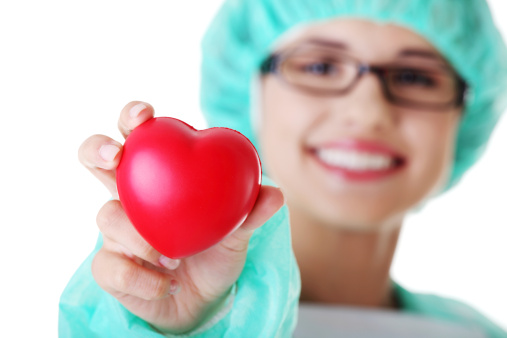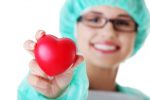
Have you ever had a burning sensation coming up from your upper abdominal area and extending up behind your breast bone after a meal? Is the problem getting worse, or does it only happen when you eat certain types of foods? If you have this condition, there may be a few reasons why you have it. The most common reasons for developing esophageal reflux or heartburn are obesity, pregnancy, diet, stress, and smoking. When this happens, the valve-like sphincter muscle found between the esophagus and the stomach relaxes, allowing the stomach contents to back-up into the lower esophagus. The problem with heartburn is that, if the condition becomes chronic, it can badly damage and even ulcerate the delicate lining of the esophagus. This can increase the risk of cancerous degeneration of the esophagus lining. Let’s look at some nutritional strategies to manage this condition.
Weight Management
People who are obese commonly have this disorder, because the added weight can increase the pressure on the esophageal sphincter, causing it to open after a meal. Some obese folks also have stomachs which show enlargement and this change in stomach shape can also influence the gastro-esophageal muscle.
My advice for those people who are struggling with their weight is to try and lose as much of your excess weight as you can, safely, as this will greatly decrease the development and progression of heartburn. Obesity, combined with a change in posture, like lying on your back, can irritate the symptoms and cause insomnia.
Nutritional Considerations
If you consume a diet which is higher in fast foods, fried foods, smoked meats, hot dogs, and spicy foods, this can be a real problem for you. These foods can cause the stomach to produce more acid, will slow gastric emptying, and can also produce relaxation of the gastroesophageal sphincter valve. Consuming beverages which contain high amounts of caffeine can also cause the outpouring of gastric contents into the esophagus by causing relaxation of the gastroesophageal valve.
Although the consumption of caffeine doesn’t cause this condition in most people, an increased dosage of caffeine and the consumption of other offending foods can cause a tendency to develop heartburn. I also highly recommend that you eat smaller meals five to six times per day as opposed to the typical three meals per day pattern. The smaller volumes of food will result in less acid secretion and will place less stress on the gastro-esophageal valve.
Smoking
Smoking can cause an increase in stomach acid secretion with relaxation to the gastroesophageal valve. This can directly lead to heartburn. Not only that, but smoking can directly damage the tissues which line your mouth, throat, and esophagus, causing precancerous cellular growth. I recommend that you stop smoking if you suffer from regular heartburn, as your risk for cancer of the oropharynx and upper digestive tract will steadily increase.
Alcohol Consumption
The consumption of increasing amounts of alcohol has also been attributed to the development of heartburn. Alcohol has a tendency to relax smooth muscle which is the type of muscle contained within the gastroesophageal sphincter. Increasing the amounts of alcohol you drink can either cause heartburn or make you more susceptible to it, if you have other causative factors.
Deglycyrrhizinated Licorice (DGL)
This is the only supplement that I recommend for heartburn because it is very effective and does not have the associated side effects of drug therapies. This supplement is considered an herbal product and is derived from licorice root. However, unlike licorice root, DGL does not have a tendency to increase blood pressure in susceptible individuals.
I recommend that you consume one to two tablets containing 400 mg each of DGL. The tablets are chewable, so it works much better if you chew them first and then slowly swallow them. This product can decrease the acid burning that you can feel behind your beast bone and it is also a very good remedy for inflammation or ulceration of the stomach.
Take one to two tablets three times per day. If you feel heartburn after a meal, chew two or three tablets and swallow for immediate relief.













